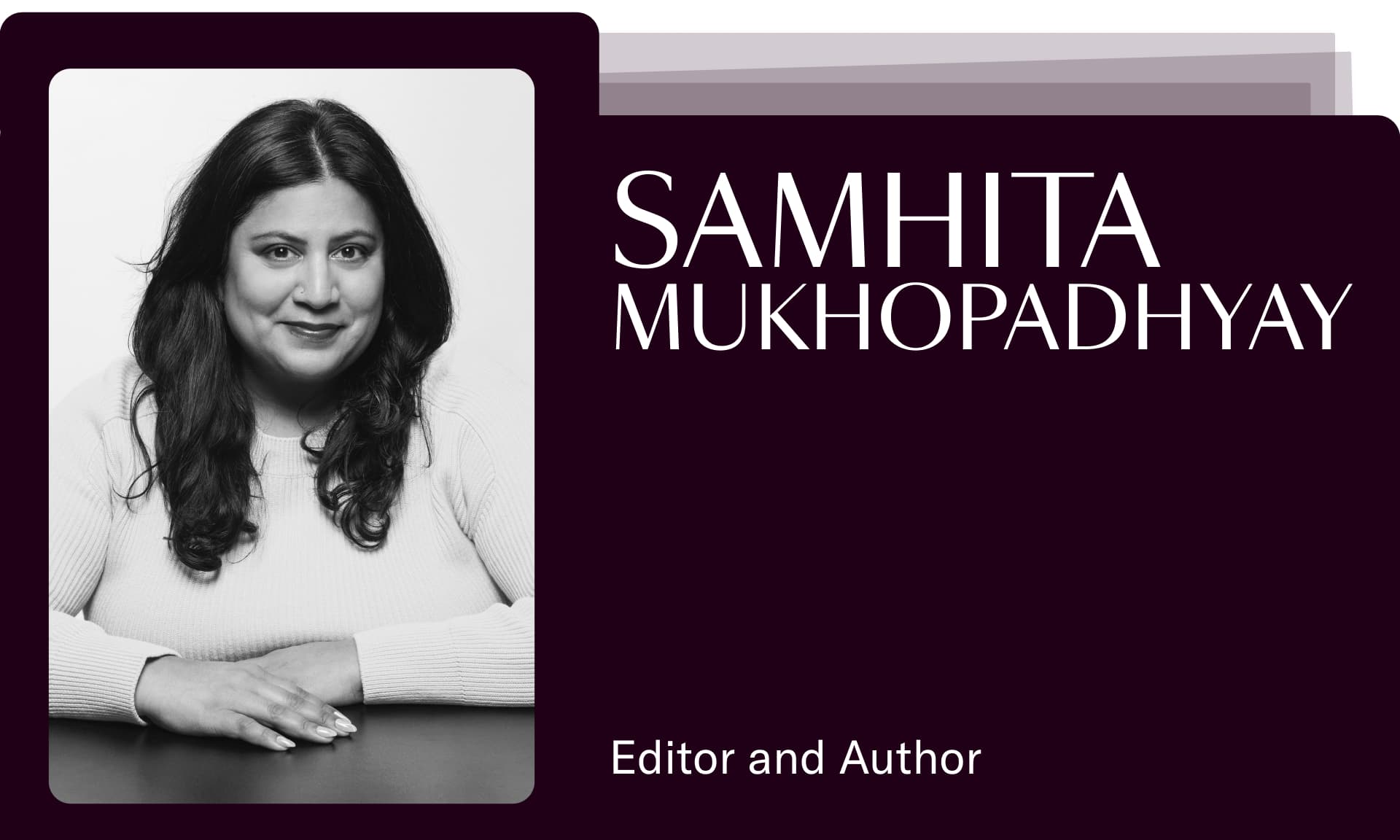Imagine this: A hiring manager invites you to lunch … just to tell you that you were rejected for a role. Or you’re in the middle of a great interview when you suddenly neeeeeed to use the bathroom. TikTok and Reddit are full of #horribleinterviews. And hiring managers have them too, as evidenced by the candidates apparently interviewing from their bed over FaceTime.
If you’re job hunting, reading these horror stories can serve as a reminder that it’s not you, it’s the current job market that’s nuts. Plus, the silver lining is even if you don’t get the gig, at least you’ve got a great story to tell.
— Anna Davies, writer, New York City
follow the money
How the news affects your finances.

How to Ace Your Next Job Interview — and What Not to Do
Between fake job listings, AI recruiters, and self-recorded interviews, landing a job interview with a human feels like an accomplishment in itself. Even though the labor market is relatively strong, we’re still in the “Great Mismatch” — a misalignment between available jobs and the type of jobs that workers actually want. So when you do secure an interview for a position you’re excited about, you naturally want to crush it.
But it’s not just about impressing them. The job needs to be right for you, too. That’s where your questions come in. “Work backward: Think about what you need from a company, and then find the questions that help you assess if it’s a fit,” says Jess Wass, CEO and Founder of Reworkit, a job coaching company.
Your move:
Be strategic. Dive into company reviews, chat with industry folks, and use any initial screening call with HR to get the lowdown on logistics like compensation, hybrid flexibility, and benefits.
Smart questions:
“I noticed the company recently did X. Are there similar projects I would be working on?” This kind of question shows you’ve done your homework and are interested in the company’s future, says Wass. Psst: Use ChatGPT to brainstorm company-specific questions.
“What does a typical week look like for the team?” This gives you a sneak peek into the team’s schedule, workload, and how they handle flexibility — aka, a look into your future work life.
“What’s the greatest challenge the team is facing, and how will this role help fix that?” This is a gem for assessing company culture and understanding the real impact and expectation of the role.
Questions to avoid. Skip anything obvious that could be answered by a Google search or a closer read of the job description. Also, steer clear of questions like, “do you like working here,” which will almost always get a canned response or pointed questions such as “what time do you start and end work?” which could unintentionally come off as uncommitted.
for the group chat
The money stories everyone’s talking about.
Are you team “money is the root of all evil” or “money makes the world go round?” Find out which is better for your bank account.
This financial expert saved for his plan to live past 90 years old. Then he got terminally ill at age 60. Does he regret anything?
Pop quiz: How much do you think the average American spends on health care in one year? (Unsurprising hint: It’s more than any other nation.)
When you want to split the bill, but that one friend always “has to get the credit card points.” Is it NBD or actually really annoying? Read what others had to say.
What a Kamala Harris win could mean for the economy. Plus, her stance on affordable child care and paid family leave.
P.S. Wake up to today’s most important stories right in your inbox by signing up for the Daily Skimm. Millions of your friends have already done it.
ask an expert
We asked you to vote on a question you’d like answered. The winner was:

How much higher can I negotiate a salary offer?
FEATURED EXPERT:

Caroline Hendershot
Host of Well Played & Reporter for NY Jets
Negotiating is expected, but also complicated and stressful. That said, you can’t get what you don’t ask for. “No one is going to advocate for yourself as well as you can,” says Viviano Dunay. “I’ve had clients negotiate upwards of $50,000 more in total compensation, and all they did was ask and make their case. I’ve [also] never had a client get an offer rescinded because they negotiated.”Four tips to use during your next salary negotiation:
Do your research. Compare comp plans for similar roles, so you can make sure your request is realistic and competitive. Use Glassdoor, Payscale, and crowdsource other job postings to confidently make your case. “Don’t just throw a number out there because you want it and it sounds good,” says Viviano Dunay.
Get aligned early. Chat about compensation early during the interview process by saying something like, “I’m really excited about this role. Just to make sure we’re on the same page — what’s the salary range?” says Viviano Dunay. This helps you set expectations before the process goes further.
Push. Let’s say you were offered $80,000 for a role in which you were hoping to make $90,000. You might say “Thanks so much. I believe I can bring value in XYZ ways. Based on my research, and what I’m bringing to the table, I was expecting the salary to be closer to $90,000. Is there any way we can move more in that direction?” suggests Viviano Dunay.
Ask for one thing at a time. Salary is one thing, but you can also negotiate bonuses, relocation packages, PTO, stock options, job title, remote work policy, and tuition reimbursement. If a potential employer won't budge on salary, move onto the next most important item.
action items
How to win at work, according to successful women.

As the executive editor of Teen Vogue, Samhita Mukhopadhyay seemed like she had it all: a great title, amazing connections — and even front row seats at New York Fashion Week. But behind the glamour, she was also struggling with anxiety and burnout. So, she quit her gig and wrote a book about her experience and more. In The Myth of Making It: A Workplace Reckoning, she takes a hard look at hustle culture and its very real effects. Here, Mukhopadhyay, who’s currently the editorial director of The Meteor, talks about why it’s OK to not lean in.
Success isn’t all or nothing.
“Not every project has to be straight A's. A project could fail or be disappointing, and you won’t get the feedback you expected. If you focus instead on what the experience was like and how you learned from it, you can find meaning and purpose."
Self-care is a mental shift.
“When I was burnt out, I thought a massage was going to somehow change things, but a bigger shift needed to happen. Now I know to take a breath and look inward to find what motivates me, my triggers, and my barriers.”
Know what motivates you.
“Ask yourself: ‘What makes me feel happy and satisfied? Parenting? Making space for friends? How do I find my grounding in that?’ I’m not saying you shouldn’t also be ambitious or ask for raises, but you need to be really clear on what ‘success’ looks like for you, and why you’re doing what you do.”
Answers are edited and condensed for clarity.
Subscribe to Skimm Money
Your source for the biggest financial headlines and trends, and how they affect your wallet.